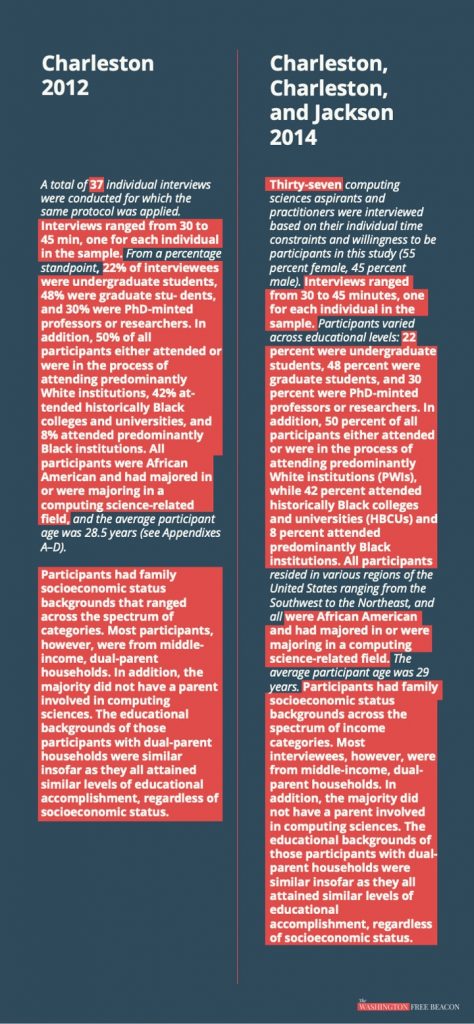Harvard University is currently embroiled in another potential scandal, now involving its Chief Diversity Officer, Sherri Ann Charleston. A detailed examination of Charleston’s 2009 dissertation has revealed numerous instances of alleged plagiarism. This comes after former Harvard President Claudine Gay had to resign due to accusations of plagiarism.
The complaint levels 40 accusations of plagiarism against Charleston, covering her entire range of published work. It alleges that in her 2009 dissertation for the University of Michigan, she either quoted or paraphrased the work of almost a dozen scholars without appropriately crediting them. Charleston was appointed as Harvard University’s inaugural Chief Diversity and Inclusion Officer (CDIO) in August 2020.
The document contains several examples where Charleston appeared to have used language verbatim from other scholars’ work without proper quotation marks, raising questions about the integrity of her academic contributions.
Charleston is accused of committing significant plagiarism in her academic endeavors, as she reportedly used substantial sections of text without proper attribution and is even alleged to have claimed ownership of research conducted by another academic, who is also her husband. The information comes from a complaint submitted to the university this Monday and an investigation by the Washington Free Beacon.
In their 2014 joint peer-reviewed article, Sherri Ann Charleston and her husband LaVar Charleston repurposed content from his 2012 study, presenting it as new research. This led to Sherri Ann Charleston receiving credit for her husband’s work.
SCOOP: Harvard's chief diversity officer, Sherri Ann Charleston, appears to have plagiarized extensively in her academic work, lifting large chunks of text without quotation marks and even taking credit for a study done by another scholar—her own husband.🧵https://t.co/Kqwj3srXo0
— Aaron Sibarium (@aaronsibarium) January 30, 2024
Another passage closely mirrored the work of her advisor, Rebecca Scott, and others, without appropriate citation or quotation marks. Similarly, another section of her dissertation discussing the Spanish Civil Code and its application in Cuba showed significant similarities to a work by Scott and Michael Zeuske, again lacking proper quotation marks.

The allegations extend to various parts of Charleston’s dissertation, where she seems to have lifted whole sentences and paragraphs from other scholars’ work.
Charleston, a historian specializing in U.S. history with an emphasis on race, gender, citizenship, and law, and an attorney focused on constitutional and employment law, recently held the position of Assistant Vice Provost for Diversity, Equity, and Inclusion and Chief Affirmative Action Officer at the University of Wisconsin-Madison.
There, she evaluated the campus’s strategic diversity plan, managed the Office of Employee Disability Resources, and supported scholarship programs for underrepresented communities. With expertise in affirmative action, Title IX, and ADA compliance, her work aims to apply diversity and inclusion research in academia.
Additionally, she taught at UW-Madison’s Department of Gender and Women’s Studies and was recognized by Diverse Issues in Higher Education magazine in 2019 as one of the “Top 35 Women in Higher Education.”
The new allegations come after ex-Harvard President Claudine Gay faced criticism for not strongly condemning the October 7, 2023, Hamas-led attack on Israel. During a Congressional hearing in December, Gay, along with MIT and University of Pennsylvania presidents, was questioned about handling antisemitism on campuses.
It happened again
Harvard’s “Chief Diversity Officer” accused of 40 separate acts of plagiarism
Nobody is destroying Harvard’s brand more than Harvard
Woke dumpster fire https://t.co/d9JYfxTXvJ
— DC_Draino (@DC_Draino) January 30, 2024
Simultaneously, Gay faced plagiarism accusations involving nearly 50 instances in her academic works. The New York Times reported the allegations ranged from using material without proper attribution to paragraphs only lightly paraphrased.
Harvard initially denied these allegations but later acknowledged some citation issues in Gay’s work, which she corrected. Following these controversies and a Congressional committee’s decision to examine her work, Gay resigned from the presidency of Harvard University.

